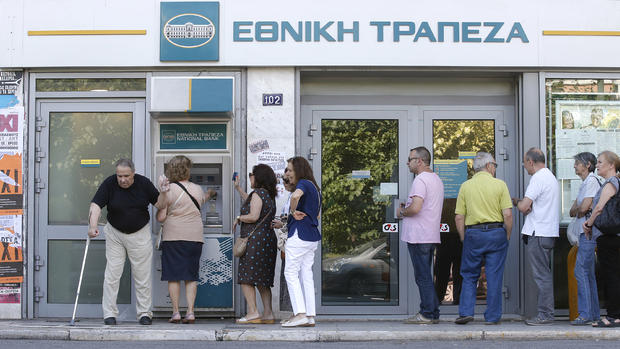What the Greece deal needs to become real
Greek Prime Minister Alexis Tsipras has a thankless task ahead of him now that his nation's creditors have reluctantly agreed to provide an 86 billion euro ($96 billion) bailout package, Greece's third since 2010.
The leftist firebrand has to convince the Greek parliament to pass austerity measures that are far stricter than the ones that voters overwhelming rejected in a referendum Tsipras hastily called just a couple of weeks ago. Then there's the not-insignificant task of actually implementing the cuts to pensions, the sales of state assets and changes to banking rules once these measures are passed into law.
And the Greek negotiating team failed to secure the one thing they sought perhaps most highly: a reduction of the debt load it has already taken on, a burden that many economists say is unsustainable. Germany insisted that no "haircut" would be extended on the total debt, but at least the possibility of a more drawn-out repayment schedule remains on the table, if Greece can follow through on its newest pledges of reform.
But Tsipras' biggest challenge is something less tangible: restoring trust. Germany, Greece's largest creditor, and its allies demanded these austerity measures before providing assistance as proof that Greece would fulfill its promises, which they say it hasn't always done previously.
"There is a lot of work to get done in the next couple of days," said Elaine Papoulias, executive director of Harvard University's Minda de Gunzburg Center for European Studies, in an interview with CBS MoneyWatch. "There will be defections from his party for sure. Some people are even thinking that it would hard to imagine that he stays on as PM."
The next key deadline for Greece is July 20 when its 3.5 billion euro ($3.9 billion) payment is due to the European Central Bank. Greece skipped a $1.7 billion payment to the International Monetary Fund earlier this month, which cut off infusions from that organization. The IMF, though, said in a statement today it stands ready to help resolve the crisis. The country's earlier European bailout package has also expired.
U.S. investors greeted the news of a settlement -- contingent as it is on yet-to-be-fulfilled promises -- with enthusiasm. The Dow Jones industrials surged 218 points, or 1.2 percent, to 17,978 in trading today. The Nasdaq jumped 74 points, or 1.5 percent, to 5,072, and S&P 500 climbed 23 points, or 1.1 percent, closing right at 2,100.
However, Greece's financial crisis, which has been decades in the making is far from over. Experts such as Papoulis argue that plenty of blame can go around for past failures to address long-standing problems with pensions and taxes, among other things. Voters also showed little interest in reform. For instance, Constantine Mitsotakis tried to privatize state assets when he was prime minister during the 1990s -- and was driven out of office before his term expired.
"Greeks were always fed a steady diet of nationalism and complete utopia when it comes to what it takes to make a modern state function," she said. "Especially in the last five or six months, the hysteria and lies have reached epic proportions. This is like waking up from a decades-long drinking binge, and the hangover is really a bad one."
Even under the most optimistic of scenarios, the road ahead for Greece is difficult. Economic conditions there are worse than they were in the U.S. during the Great Depression, according to economists. The country's banks shut their doors more than two weeks ago to prevent them from collapsing under the weight of withdrawals from nervous citizens. Economic activity has basically ground to a halt, and unemployment tops 25 percent.
"This is probably not the end of the story because there is nothing in it that I see that's going to help the Greek economy recover," said Mark Kuperberg, a professor of economics at Swarthmore College in an interview with CBS MoneyWatch. "They could be mired in a depression for the next five years."
Kuperberg and other economists have argued that Greece is being treated unduly harshly and it's not being recognized for the strides it has made in improving the economy. That view, though, isn't universally held. Mauro F. Guillen, director of Lauder Institute at the University of Pennsylvania's Wharton School, told CBS MoneyWatch that patience had worn thin with Greece.
"The Greeks want all the benefits from the euro without having to work hard or be disciplined," he wrote in an email.
For now, the tough love approach has prevailed.
